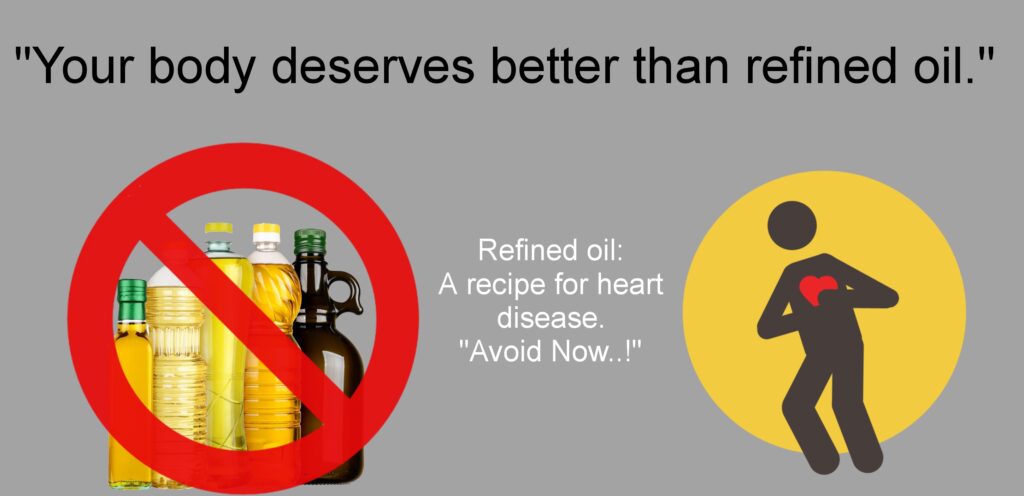
 Refined oil, also known as processed oil, is a type of oil that undergoes a process of refining, which involves the use of high heat and chemicals to extract the oil from its source. While refined oil is commonly used in cooking and food preparation, it can have negative effects on our bodies if consumed in excess. Here are some potential negative effects of refined oil:
Refined oil, also known as processed oil, is a type of oil that undergoes a process of refining, which involves the use of high heat and chemicals to extract the oil from its source. While refined oil is commonly used in cooking and food preparation, it can have negative effects on our bodies if consumed in excess. Here are some potential negative effects of refined oil:
Increased risk of heart disease: Consuming high amounts of refined oils, particularly those high in saturated and trans fats, can increase cholesterol levels and contribute to the development of heart disease.
Increased risk of inflammation: Refined oils can be pro-inflammatory, which means they can cause inflammation in the body. Chronic inflammation has been linked to a variety of health problems, including heart disease, cancer, and diabetes.
Increased risk of obesity: Refined oils are often high in calories and can contribute to weight gain and obesity when consumed in excess.
Increased risk of insulin resistance: Refined oils can disrupt insulin signaling and contribute to insulin resistance, which can lead to type 2 diabetes.
Increased risk of cancer: Some refined oils, such as those that are high in omega-6 fatty acids, have been linked to an increased risk of certain types of cancer, including breast and prostate cancer.